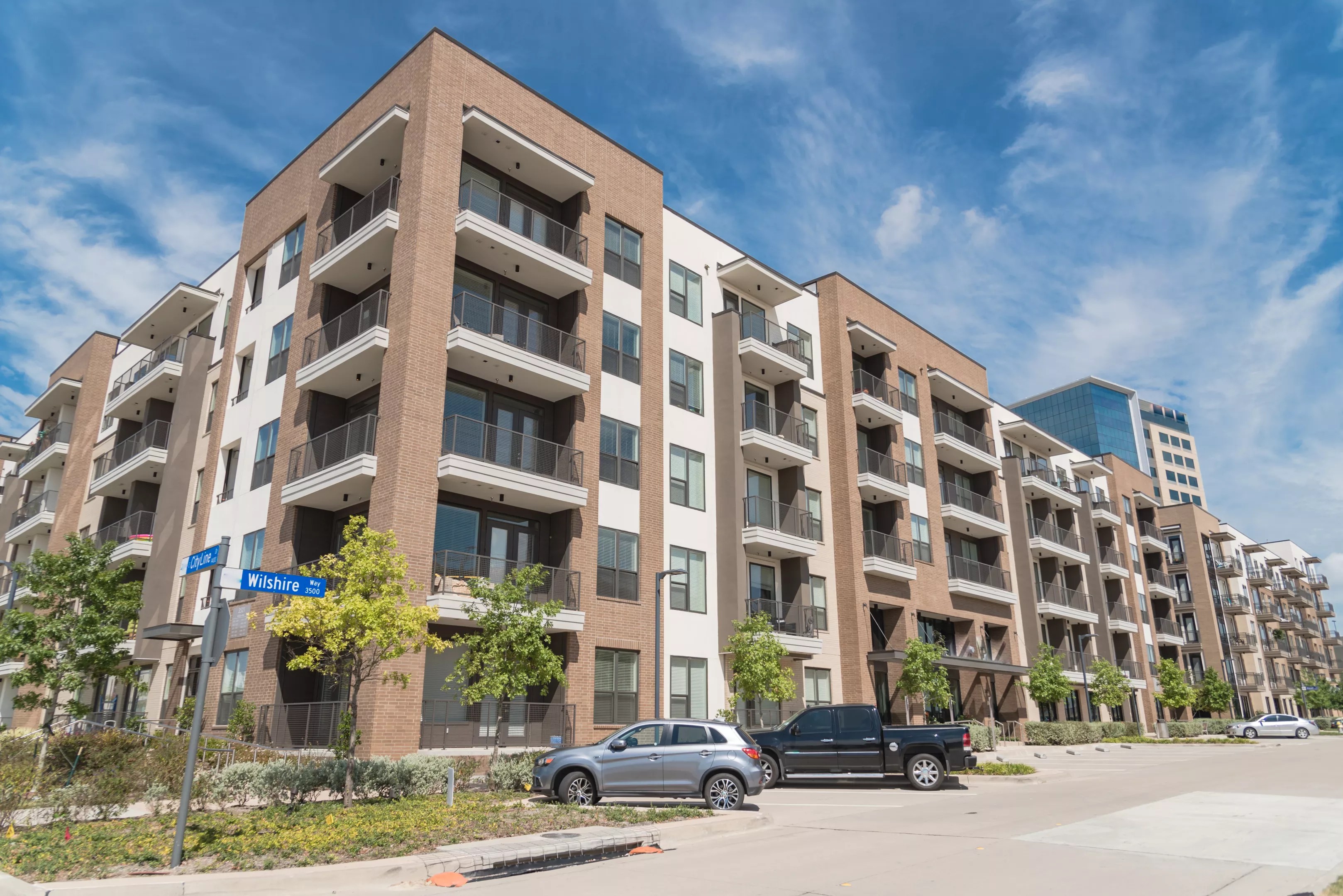
Adobe Stock

Audio By Carbonatix
Renters today must heavily weigh the pros and cons of their current habitation before heading to Home Depot for some packing tape and peanuts. Maybe the elevator is always broken, and the parking lot gate never works, but given the current market competition, renters just have to accept some losses, even if it means having a few roaches as roommates in the summer season. According to data compiled by the apartment search website RentCafe, Dallas has the second-most competitive rental market in the state, and it’s only getting worse, so put down the tape and re-read your lease renewal paperwork.
The report says that while demand in the Dallas apartment market grows, availability shrinks, and more leases are being renewed, creating small vacancy windows. RentCafe compiled data across 139 rental markets across the United States. The cities were then ranked using five different metrics, ranging from occupancy rate to total days spent vacant and lease renewal rate. Dallas came out at the top of the list of Texas cities, trailing behind Houston.
But if you were thinking about high-tailing it out of Texas, you may want to hesitate. In all, Texas and Oklahoma have some of the lowest rental market competition scores in the country. To the surprise of no one, the Northeast is the hardest place to find a pad in the U.S. In fact, no city in Texas ranks in the top 30 most competitive cities.
In Dallas, though, fewer renters are moving out. Lease renewals increased 5% between 2023 and 2024. The average apartment in Big D only stays on the market for 45 days. But the most damning statistic, and the real reasoning behind the competition in Dallas is the lack of availability. According to the report, the share of new units on the market slowed to just 0.61%.
The construction of new multi-family developments has been an ongoing battle in the city, with many corners of the city wary of the large, sky-high, amenity-rich complexes that often come with high, sometimes unaffordable, price tags. The problem most recently reared its ugly head through all-caps "NO REZONE" signs in North Oak Cliff. The proposed rezoning would have allowed for high-density housing in the neighborhood, most notably a 100-or-so-unit apartment complex.
"If this is what the [zoning] commissioner thinks we should be doing with all our land in Dallas and all our single-family homes, this is alarming for a lot of people who are not comfortable with ForwardDallas," Joseph Beckham, president of the West Kessler Neighborhood Association, said to the Observer in August 2024. "They use this term, you hear it a lot, gentle density. This is the opposite of gentle density. This is a hostile takeover of a neighborhood."
But this isn't the first time a similar issue has created tensions, and it's not just in the historic Oak Cliff neighborhood. Ten years ago, a proposed skyscraper residential building had the people of Highland Park just as worked up.
"The density is a secondary concern. … Our focus is the height of the building. … Our request to the city of Dallas is to continue the three-story limitation on the property," then Highland Park town administrator Bill Lindley said to the Observer when it was the rich part of town's turn to oppose a big building.
After years of battle and reviewing the zoning code, the city has finally reached a middle-of-the-road agreement, adopting a new residential code that makes it easier to construct small-scale apartment complexes with eight or fewer units.
"Our code today treats a four-plex the same as a 200-unit apartment building. That doesn't make sense. It drives up construction costs and discourages the kinds of housing we say we want in Dallas," council member Paul Ridley said at a council meeting in April. "This is a common-sense change."
The new change aims to address the "missing middle" in housing, and hopefully, will lower competition for Dallas renters.